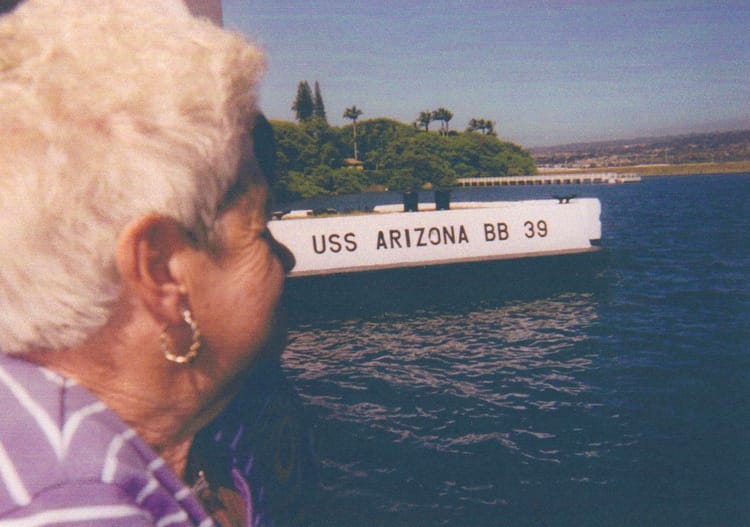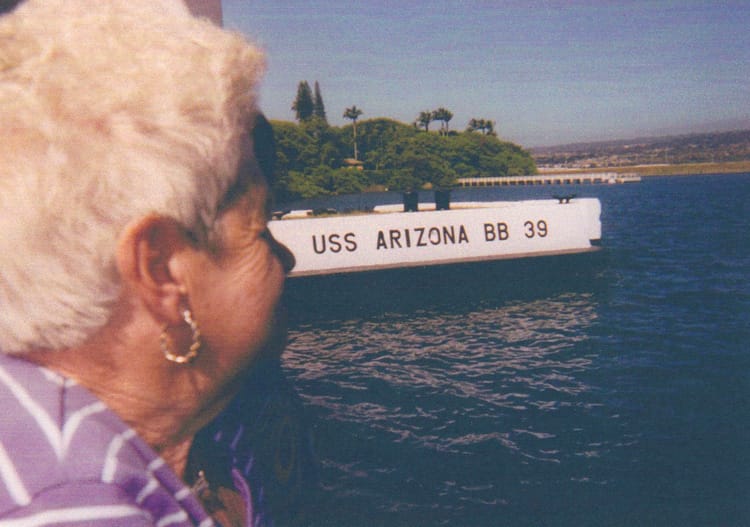A watershed moment

3-8-16
Just before Christmas of 2005, nine months or so after my father died, I went with my Mom, Bill, and his family to Hawaii for a couple weeks. On a day when Bill and his crew were off doing something, my mother and I flew to Oahu from Maui. Four years earlier, on a similar trip, my father, who served aboard the Boston and saw more of Pearl Harbor than he cared to remember, refused to go. My ex, Jacquie, lobbied hard to go to Pearl Harbor, but he would have none of it. Ever the middle child and would-be peacemaker, I sided with my father and we didn’t go.
When my mother and I got to Pearl Harbor, we went directly to the visitor’s center. They only allow a certain amount of people in at one time, so you end up with an admission ticket with a time stamped on it. As it turned out, we had to wait an hour and fifteen minutes. Not to worry – there is a waiting area close by, complete with plenty of places to get a coffee, buy some pearls, or shop for souvenirs. We went to a cafe place and ordered coffee and a snack and sat at a table. The whole area was flooded with piped-in Big Band and Swing music, exactly as it would have been in the early 40’s.
At the time this happened, I had already begun writing A Bird’s Eye View, but had never told her. We sipped coffee and all of a sudden, tears started rolling down her cheeks. I asked her what was wrong. She confessed that the music had transported her back to her youth, and she tearfully remembered how hard it was during the war for a teenage girl like her – back home while boys she knew were getting killed, while her brother was off in the Navy somewhere (he was on a destroyer in the Pacific), how her father cried at the thought he would lose his oldest son, how all of a sudden things were rationed, and things that young girls needed – nylons and make-up and such disappeared from the shelves . . . and then they couldn’t get coffee or milk or meat or even bread sometimes because all that stuff was going to feed the boys . . . .
Those few minutes with my mother were transformative. Our “relationship” was shaky at best – (I’m being kind.) I spent my entire youth plotting ways to get as far away from her as I could . . . . But right then and there, in her moment of vulnerability, and because I was working on my first book about the Boston, she suddenly had . . . context! She was drawing a picture for me of the War, and my father’s role in it, that I had never thought of before then.
Our visit to Pearl Harbor was immensely helpful to her: Watching the footage of the Attack, listening to the music, visiting the sunken Arizona – all those things resonated deeply with her. It helped her understand, a little, what it was like for my dad and all the other sailors in the Pacific. It also helped me, the kid whose father was pretty tough on, understand a little what it was like to be part of the action in the Pacific. And it helped me understand my mother a little better . . . and it helped me be a part of her everyday life until the morning of March 8, 2015.
steve
